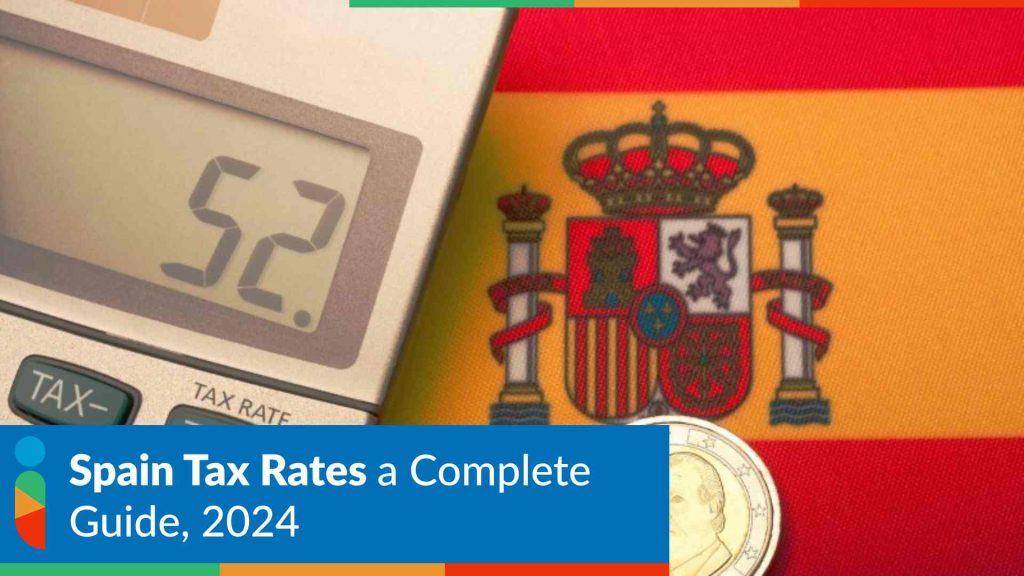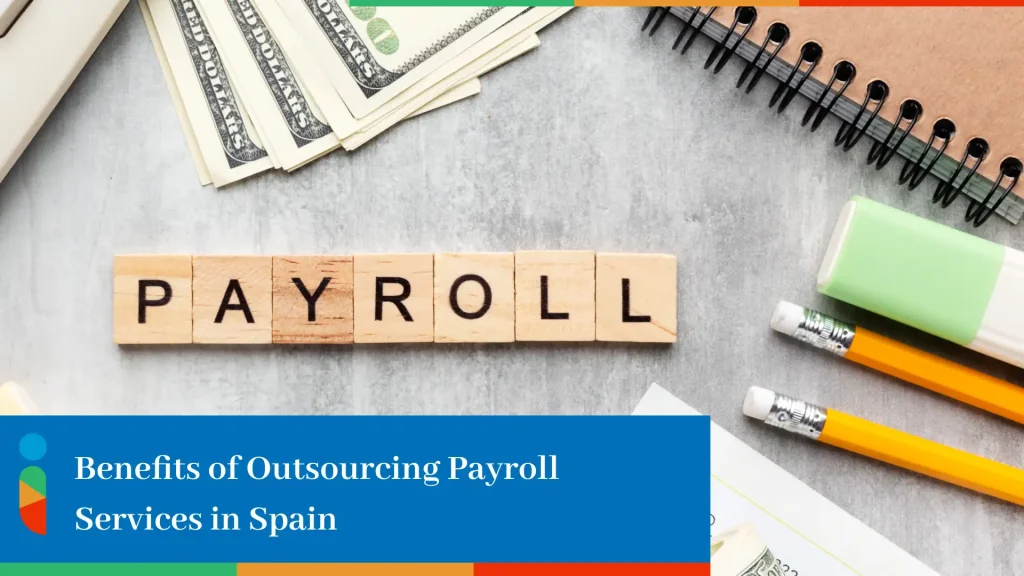Spain tax rate are defined by rules that determine the rate of income tax on wages based on total wages earned in a year. The tax brackets are generally the same each year, but the amounts can vary from year to year.
In this article you will find everything related to taxes in Spain, the most important rules and changes.
Recent Changes in Spain’s Capital Gains Tax

- The general corporate Spain tax rate is 25%, but in some cases special rates may apply (For Example 30% for banks, 15% for startups, etc.).
- The new alternative minimum tax applies to taxpayers with a net turnover of more than 20 million Euros in the previous year or who belong to a consolidated fiscal unit.
- A new wealth tax will be imposed in three parts in 2023 and 2024. 1.7% for inheritances between 3 and 5 million Euros. 2.1% between EUR 5 and 10 million. 3.5% for amounts exceeding 10 million euros.
- The tax authorities tax capital gains and capital gains at a higher rate of up to 27%, and they raise income tax by 1 percentage point above €200,000.
- Capital gains above €300,000 increase by 2 points to 28%. Tax benefits for small and medium enterprises have been extended and tax benefits have been introduced.
- The government has increased the local first home investment allowance to 5% for both young people and owners of monumental flats.
- The government has improved rent relief for a variety of groups, including disabled people, over-65s, and victims of domestic violence and terrorism.
- A maximum of EUR 200 is deducted for birth and adoption. Two new exceptions have appeared. One is to cover educational costs of up to €150 per student, and the other is for environmental donations.
Rate and Adjustments
- The following tax changes could offer significant cost savings for international buyers, particularly for expensive properties.
- In addition to these tax advantages, Andalusia has lower income, property, inheritance and gift taxes than many other regions in Spain.
- Spain reduced the income tax rate to 9.5%, which is the minimum rate imposed by Spanish law. As mentioned above, Spanish labor law completely abolished the wealth tax (WIT).
- Inheritance tax and gift tax have also been reduced from 7% to 26%. According to the calculations of the Junta de Andalucia, this means that the marginal Spain tax rate will not exceed 45%. So far, this figure is 70%.
- The government has reduced the current transfer tax to 7% and is currently taxing notarial activities at a Spain tax rate of 1.2%. They will also reduce the Property Transaction Tax (PTT) from 8% to 10% on all sale prices, with a flat rate of 7%.
- This only applies to resale properties. State Customs Duty (AJD) has been reduced from 1.5% to 1.2% for all sales prices. This only applies to newly built homes.
- Spain has extended these tax-free allowance cuts indefinitely, which were effective until December 31, 2022.
Exemptions and Reliefs
What are the new advantages of living in Andalusia?
- Income tax free allowance spain on capital gains can be as high as 26%.
- If the investment return does not exceed 200,000 Euros, the Spain tax rate varies from 19% to 23%.
- Extension of the rent deduction period.
- Income is calculated after deducting all relevant expenses, including interest on loans.
- Close relatives are effectively exempt from inheritance and gift taxes.
- In Spain, permanent residents of other countries are completely exempt from inheritance and transfer taxes.
- Currently, personal pensions consider capital gains and calculate taxable income as the difference between the amount invested and the income earned.
- Here the tax can be up to 2.5%.
- Most international tax treaties do not actually allow for double taxation. That means no inheritance tax.
Reporting and Compliance
- Individuals sell real estate, and local authorities collect capital gains tax. This tax encompasses factors such as community planning, infrastructure investment, general maintenance, and the value of the land on which the property is constructed.
- Individuals calculate and pay capital gains taxes solely on the property value, not on ownership. Local authorities in Spain establish capital gains tax rates, which may differ among neighboring local authorities.
- The capital increase is determined by the increase in the cadastral value of the land on which the property is built.
- The municipality utilizes this value, referred to as ‘Property Value,’ to determine local property tax or IBI and states it on the annual IBI bill issued by the municipality.
- The basis for this tax is the cadastral value of the property (usually lower than the market value). The amount of tax owed depends on how long the seller has owned the property. The longer this period, the higher the amount of the tax.
Spain’s Capital Gains Tax vs. Previous Regulations
- How much will you actually pay in other tax-free countries?
- It is very hard to predict what you will get. To find out how much you can get tax-free, you first need to know two things: Spain’s VAT rate (IVA) The actual value added tax (VAT) on the products you purchase.
- Let us use an example to explain how much you can get tax-free.
- So, if you buy this amount, you will earn €1200. Part of the 208 Euros are actually taxes paid. Total 208 / 1200% 17.3 It should be tax free allowance Spain, but you cannot get the full amount back.
- When calculating your tax deductions, you should also consider that you will need to work with a broker when you receive payments.
- In Europe, Planet Payments and Global Blue are the most popular, but depending on the country, there are also companies that broker domestic transactions or small transactions without fees. Brokerage costs will also affect your refund amount.
- These companies will usually deduct a portion of the total refund amount you receive. As the price of the purchased product increases, the discount rate decreases. Brokerage fees may vary from company to company.
- Therefore, this page will help you calculate your tax exemption. The amount you can get back varies by company, including whether you can get it in cash or convert the amount deposited into your account into foreign currency.
Timeframe Modifications in Spain’s Capital Gains Tax
- The tax system in Spain divides Spanish foreign residents into two categories: taxpayers and non-taxpayers. This classification affects virtually all Spain tax rates. So, the first thing you need to learn is the tax situation in Spain.
Who is recognized as a taxpayer in Spain?
Spanish taxpayers consider foreigners who meet one of the following conditions and tax them on their worldwide assets:
- Live in Spain for more than 183 days per year.
- The annual income is greater than 22,000 euros.
- Carrying out an independent activity or running a business in Spain.
- You own a property in Spain and earn at least €1,000 in rental income.
- Earn more than €1,600 per year through capital gains and savings in your Spanish bank account.
Who is not a taxpayer in Spain?
Spanish taxpayers consider foreigners who meet one of the following conditions and tax them on their worldwide assets.
– Lives in Spain less than 183 days a year.
– Income is less than the amount above.
- If you are not a Spanish taxpayer, the tax liability will certainly be lower. In addition, you do not have to declare assets outside of Spain.
- Basically, there are six types of taxes for foreigners living in Spain. These include income tax, inheritance and gift tax, inheritance tax, capital gains tax, sales tax and property tax. Your tax status affects the rate you pay for almost all types of taxes.
Double Taxation Agreements
- Foreigners owning real estate in Spain must pay one of the following taxes; Value added tax, stamp duty, transfer tax, annual property tax, income tax, or wealth tax, depending on the circumstances.
- Property taxes for foreigners in Spain vary depending on the buyer’s nationality, tax liability and ownership status. Value Added Tax (VAT) is only payable when you purchase a new home. In the case of used houses, transfer duty and stamp duty must be paid at the time of purchase.
- On the other hand, if the owner rents or sells the property for a profit, he or she may be subject to income and/or capital gains taxes.
- Depending on their individual circumstances, foreign workers living remotely in Spain may have to pay certain types of taxes.
- One of the most important taxes foreigners have to pay in Spain is income tax. Like property taxes, income tax in spain for residents depends on the recipient’s citizenship and tax brackets Spain. One of the main concerns for expats living in Spain is double taxation.
- In fact, paying taxes in both Spain and your home country can be a financial burden for many expats. However, the Spanish government has taken a number of measures to avoid an additional financial burden.
Pension Planning for Expats

- How to avoid income tax brackets Spain: Yes, there are different legal regulations and investment strategies. Main residence exemption If you use the proceeds from the sale of your first home to buy another property as your home, you are legally exempt from capital gains tax.
- You should claim this exemption as the property you are selling is your only home (‘dominant home’) and you are using the property you are selling to buy a new home. That means you need that house.
- This exemption applies to Spanish taxpayers and tax-exempt residents who do not have to pay tax if they reside in an EU country that has a tax treaty with Spain.
- To qualify for the main home exemption, you must use the proceeds from the sale of your first home to buy a second home within two years and live in it for three years. If you are over 65, you are exempt from capital gains tax in Spain.
- To be exempt from capital gains tax, you must have lived in the same home for at least three years before selling it. The Spanish tax authorities will confirm the completion of the relevant three years and justify the reasons for selling the property.
- Good reasons include disability, inability to live in the block or moving for work. If you are over 65, have been tax in Spain for residents for at least three years and have transferred all proceeds from the sale of your property into your pension.
- You are also exempt from paying capital gains tax on your second home in Spain.
Foreign Investor-Friendly Assets
- The most common tax issues faced by expats living in Spain are language barriers when registering and paying, legal and procedural complexities and double taxation issues. Your tax accountant can take appropriate steps to resolve these issues.
- The main benefit of working with a Spanish tax advisor is a better understanding of local laws and the ability to overcome language barriers. Working with a tax accountant saves you time. Consultants often help expats living in Spain with tax planning.
- This means you do not have to waste time chasing up initial payment terms or looking for instructions. The process of filing taxes as a foreign resident in Spain begins with registration at the Agencia Tributaria, the Spanish tax authority.
- Both taxpayers and taxpayers can start paying taxes after registering with the tax authorities.
Timeframe Modifications in Spain’s Capital Gains Tax
- Foreigners living in Spain should familiarize themselves with Spain’s tax exemption regulations to minimize tax liability.
- These additional rights may be in the form of tax breaks, tax brackets and exemptions arising from the Beckham Act and double taxation agreements between the two countries.
- Fees and Spain tax rates vary according to the foreigner’s circumstances, including age, marital status, nationality, date of arrival in Spain and parental status. Therefore, it is better to study each case individually.
Contact us
If you want to know more about the upcoming tax in Spain, see the related topic here. You can contact us.






